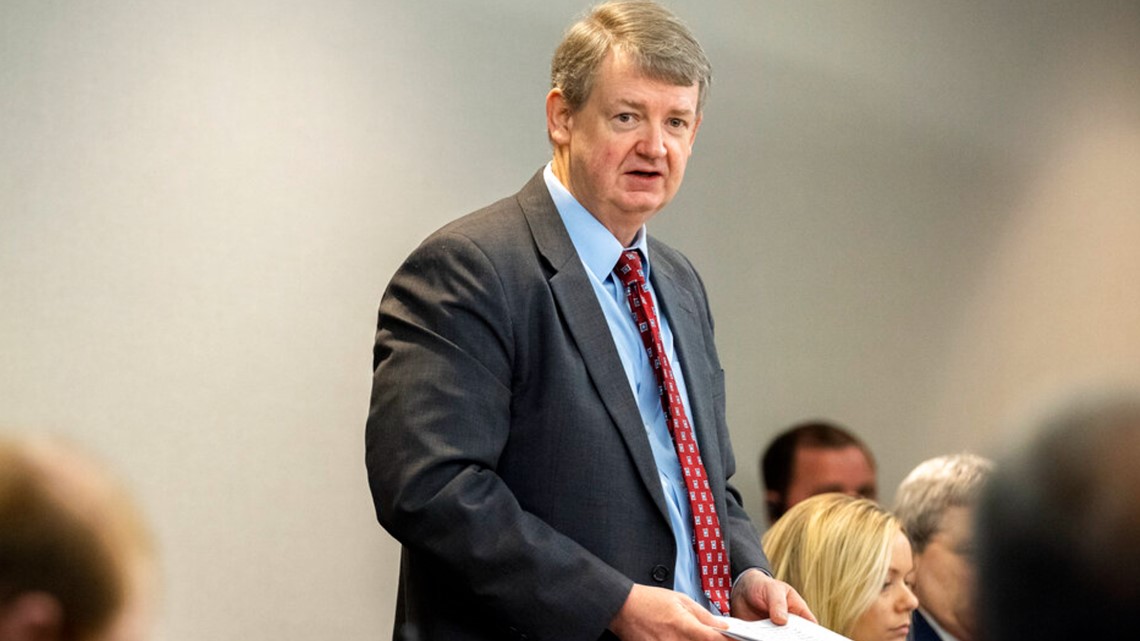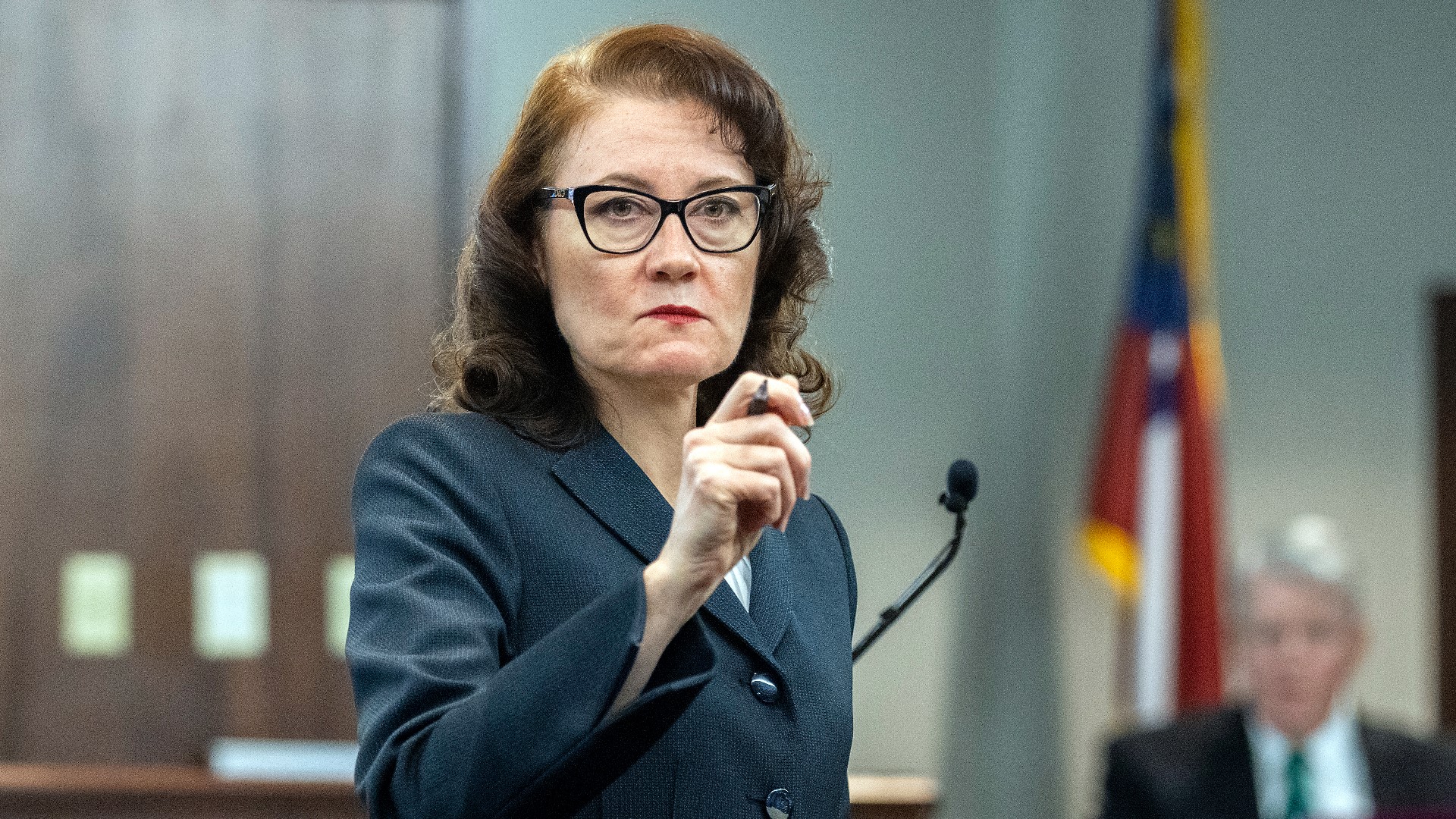BRUNSWICK, Ga. — Three white men facing charges in the death of a Black jogger in Brunswick could soon know their fate. The defense rested its case Thursday in the trial surrounding the death of Ahmaud Arbery, the 25-year-old shot and killed while running through the Satilla Shores neighborhood on Feb. 23, 2020.
On Tuesday, Nov. 23, 2021, the jury was handed the case to begin deliberations, which is exactly 21 months after Arbery died.
Travis McMichael fired the fatal shots, his father Greg McMichael saw it happen and egged him on to do it, and their neighbor William “Roddie” Bryan hopped in his pick-up truck to film it all, according to the State of Georgia’s argument.
All three men are facing malice murder, felony murder, aggravated assault, false imprisonment and criminal attempt to commit false imprisonment charges.
The case, no matter the outcome, is making history. Here are a few reasons why:
One Black juror
After more than two weeks of jury selection, only one Black juror was seated.
Jury selection wrapped up on Nov. 3 with prosecutors objecting that potential Black jurors were struck because of their race.
Judge Timothy Walmsley said they would not be re-seated because the defense offered "legitimate, non-discriminatory, clear, reasonable, specific reasons" to strike each individual juror.
The trial played out in front of a jury made up of 11 white people and a sole Black juror.
Ahmaud Arbery's mother sees body camera video for the first time
The national outcry over Arbery's death stemmed from a widely circulated cell phone video of his killing.
Other videos showing different vantage points of the incident were leaked through social media leading up to the trial.
RELATED: Jesse Jackson, weeping and a motion for mistrial take center stage at Ahmaud Arbery death trial
More graphic images were shared with the jurors, including body camera video recorded in the aftermath of the fatal shooting.
Arbery's mother, Wanda Cooper-Jones, saw law enforcement video following her son's death for the first time on Nov. 12.
Judge Walmsley steps off the bench
Judge Walmsley set strict boundaries of respect during the trial and even stepped off the bench to make his point.
Defense attorney Jason Sheffield was visibly agitated when a second straight objection to his line of questioning by the prosecution was sustained by Judge Walmsley on Nov. 9. Sheffield appeared to shrug off the judge as he spoke to him and turn back around, saying something to the effect of being "confused."
The judge dismissed the jury, then offered strong words to Sheffield.
"I don't care whether you like my rulings or not, or you like me or not, but in this court, the Superior Court, it is axiomatic that counsel show at least respect for what the court is doing," the judge said. "And what you just did shows a lack of respect for what the court is trying to do here, which is create an environment which is fair to all parties."
Sheffield was reprimanded, so was an associate with the state after making an "inflammatory" statement.
An attorney cross-examined a defense witness asking if stealing should be punished with the death penalty. The judge decided to admonish the question.
Judge Walmsley, from the beginning, said his goal was to be fair no matter how that may frustrate either party.
Defense lawyer in the spotlight


Attorney Kevin Gough proved to have a way with words as his motions made national headlines.
Gough, representing Bryan, motioned for a mistrial at least six times -- even twice in one day.
The attorney often mentioned the "woke left mob," arguing the "potpourri of political statements" was hurting his client's case.
Gough also became widely known from his comment to Judge Walmsley that he didn't want "any more Black pastors" in the courtroom.
His words would spark a movement among faith leaders.
Black pastors pray together
Following Gough's comments calling Black pastors "mob-like" and "intimidating" in court, faith leaders and supporters across the country traveled to the Glynn County courthouse in response.
Rabbis, pastors, reverends and civil rights activists crowded around the courthouse steps to rally in prayer. Rev. Jesse Jackson, Pastor Jamal Bryant and Martin Luther King III were among some of the most notable figures on Nov. 18.
"While I may not be a preacher, there is a ministry that exists. Part of that ministry is whenever you see injustice, you must stand up. Dad used to say 'Injustice anywhere is a threat to justice everywhere." Martin Luther King III, the eldest son of Martin Luther King Jr. said.
Arbery's accused killer takes the stand
Defense lawyers called seven witnesses to the stand and their most compelling witness was their client, Travis McMichael.
“I want to give my side of the story,” McMichael said on Nov. 17 as he took the stand.
He fired the shotgun that killed Arbery last year, he said during his testimony.
"This is the most traumatic event I have ever been through in my life," he said.
McMichael's testimony and questioning would take up two days in the trial as he gave a detailed account of the events that led up to Feb. 23, 2020.
What jurors didn't hear
Both parties presented evidence to the jury for two weeks, but one topic did not come into the conversation: race. Although the topic didn't come up much, it was definitely in the undertones of the trial.
The defense asked the judge on Nov. 18 to not allow the state to ask Travis McMichael about a slur that was allegedly heard the day Arbery died.
Before the court could rule on the defense's request, both sides rested their case without prosecutors raising the issue.
RELATED: Ahmaud Arbery's accused killer wants to exclude racial slur allegedly used while standing over body
However, Prosecutor Linda Dunikoski did bring up Arbery's race in her closing remarks.
"All three of these defendants made assumptions about what was going on that day and they made their decision (in their driveways) to attack Ahmaud Arbery because he was a Black man running down the street," she said.
While the race argument overall was not an overarching factor in this trial, it may come up next year. A federal hate crime trial is scheduled for all three of the men in February.

